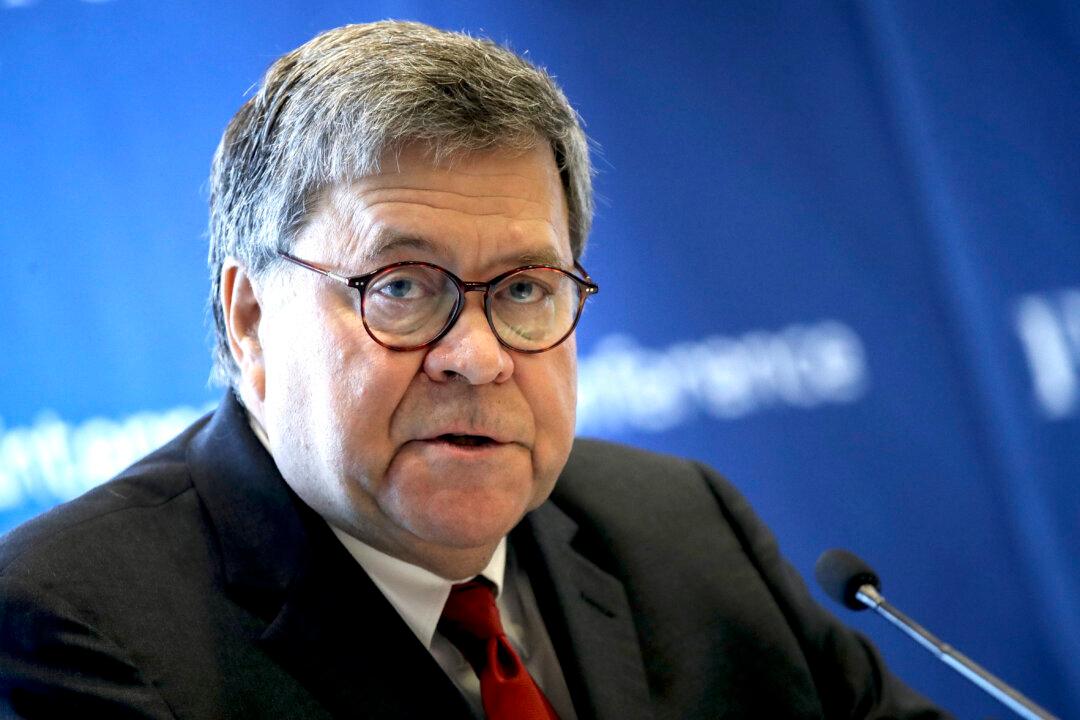U.S. Attorney General William Barr raised concerns about the increase in secularism in society in a speech on Oct. 11, speaking about how that has contributed to a number of social issues plaguing communities across the nation.
Barr, who delivered his remarks to students at the University of Notre Dame’s law school, drew attention to the comprehensive effort to drive away religion and traditional moral systems in society and to push secularism in their place.




